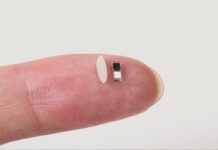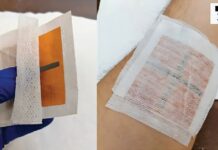Dr. Shyam Sundar Nandi, a prominent scientist from the National Institute of Virology (NIV), has received a prestigious award from India’s leading medical research institution for his innovative development of a rapid molecular test for mpox. Unlike traditional PCR tests, which can take up to a day for results, or rapid antigen tests that are often unreliable, Dr. Nandi’s test delivers results in just one hour.
Dr. Nandi was honoured at the annual Health Research Excellence Summit in Delhi, hosted by the Indian Council of Medical Research (ICMR). During the event, he was also commended for his groundbreaking use of gene-editing technology, particularly CRISPR, to enhance safety protocols in polio research laboratories across India.
According to an NIV scientist, “The availability of such rapid mpox testing kits marks a significant advancement in public health. We are planning to open expressions of interest for manufacturers and distribute these kits across both public and private healthcare settings in India and abroad.”
In August, the World Health Organization (WHO) declared mpox, previously known as monkeypox, a public health emergency of international concern. With over 24,000 reported cases globally this year, including hundreds of fatalities, mpox remains a serious threat. In India, two cases have been confirmed so far in 2024.
Dr. Nandi’s testing kit employs a method known as Loop-mediated Isothermal Amplification (LAMP), which quickly detects the virus without the need for complex laboratory equipment. LAMP amplifies the virus’s DNA at a constant temperature, and a color-changing process indicates the presence of the virus. “When a sample tests positive, the reaction releases protons, causing a pH shift that results in a visible color change. If the sample is negative, there is no color change,” explained Dr. Nandi.
Mpox is caused by the monkeypox virus, which belongs to the same family as the smallpox virus. Symptoms include painful rashes that initially appear as pimples or blisters on the hands, feet, chest, face, mouth, or genital area. While most individuals recover within two to four weeks without requiring specific treatment, the virus spreads through close contact with infected lesions or bodily fluids. Men who have sex with men and individuals with multiple sexual partners are particularly at risk of transmission.
In addition to his work on mpox, Dr. Nandi was also recognized for his contributions to keeping India polio-free through his pioneering use of CRISPR gene-editing technology. This was particularly significant for research labs, where studying dangerous viruses could pose a safety risk.
As reported by the timesofindia.indiatimes.com, Dr. Nandi, who learned CRISPR techniques under the mentorship of renowned microbiologist Dr. Ananda Chakrabarty in 2017, developed ‘non-permissive lab cells’ that prevent the growth of the polio virus, enhancing lab safety nationwide.























